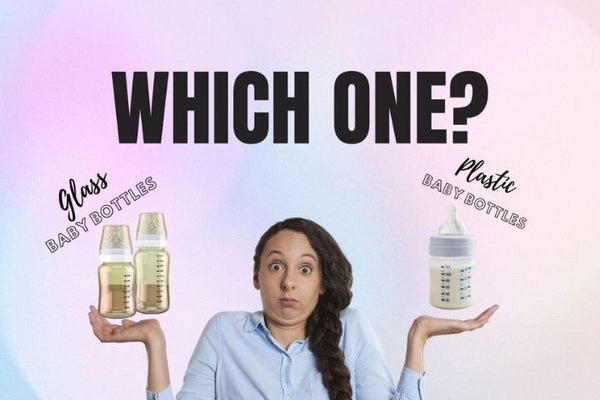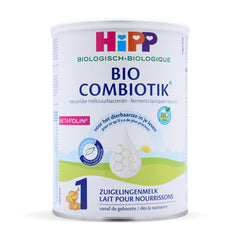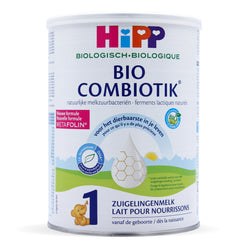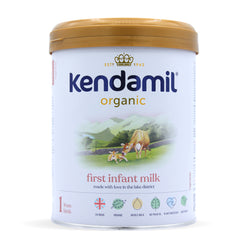Glass or Plastic Bottles - Which Is Better For Baby?
47 hours of research 5 minute read

When it comes to choosing the best baby bottle for your little one, the options can be overwhelming. Among the various materials available, glass and plastic bottles are two popular choices. In this blog, we'll delve into the debate of glass vs. plastic baby bottles, exploring the differences, considerations, and environmental impact associated with each. Additionally, we'll touch upon specific brands and subtopics such as glass baby bottles, silicone baby bottles, disposable baby bottles, and the best baby bottles for breastfed babies.
Glass vs. Plastic Baby Bottles: Understanding the Differences
1. Material and Structure
Baby bottles have come a long way from the traditional glass ones. Plastic bottles are now the norm due to their lightweight and unbreakable structure. However, the differences go beyond appearance.
a. Plastic Baby Bottles
- Lightweight and unbreakable.
- Affordable and readily available.
- Concerns about harmful chemicals, especially BPA.
- Not always dishwasher-friendly.
b. Glass Baby Bottles
- Rising in popularity.
- Dishwasher-safe and environmentally friendly.
- No harmful toxins.
- Safety concerns about breakage and higher cost.
2. The Cost Factor
Babies can be expensive, and cost is a significant consideration for many parents. Let's explore the financial aspects of choosing between glass and plastic bottles.
a. Cost of Plastic Bottles
- Generally less expensive.
- Consider the risk of potential breakage.
b. Cost of Glass Bottles
- Higher initial cost.
- Potential long-term savings due to reusability.
Environmental Impact: Glass or Plastic?
1. Environmental Considerations
Neither glass nor plastic is a perfect environmental choice, but there are notable differences.
a. Plastic Bottles
- Risk of harmful chemicals.
- Long decomposition time in landfills.
b. Glass Bottles
- No harmful chemicals.
- Easily reusable and recyclable.
2. Responsible Choices for the Environment
Tips on minimizing environmental impact, including choosing eco-friendly packaging, reusing and donating products, and recycling.
Exploring Alternatives: A Closer Look at Specific Brands
1. Glass Baby Bottles
An in-depth look at the resurgence of glass baby bottles, addressing safety concerns, and highlighting popular brands.
- Glass baby bottles with silicone sleeves for added protection.
- The advantages of tempered glass for strength and durability.
2. Stainless Steel Baby Bottles
An eco-friendly alternative to plastic, stainless steel baby bottles offer durability and safety.
- BPA-free and non-toxic.
- Insulating properties for temperature control.
Best Baby Bottles for Breastfed Babies: Top Brands
A roundup of popular baby bottle brands catering to breastfed babies, including Avent baby bottles, Nuk baby bottles, Boon baby bottles, Nano baby bottles, Playtex baby bottles, Walmart baby bottles, Mam baby bottles, Target baby bottles, Nubby baby bottles, and Dollar Tree baby bottles.
Suggested Baby Bottle for HiPP Anti - Reflux
Selecting the best baby bottle for HiPP Anti Reflux baby formula depends on the specific needs of your baby. Since the HiPP Anti Reflux formula is designed to reduce reflux and spitting up, you may want to consider bottles that have features to minimize air intake, have an anti-colic design, and support paced feeding. Here are a few options:
Playtex Baby Bottles:
- Features a unique liner system that collapses as the baby feeds, reducing air ingestion.
- The wide nipple design encourages a natural latch and promotes a comfortable feeding experience.
Mam Baby Bottles:
- Mam bottles feature a vented base to regulate pressure, minimizing the risk of colic.
- The SkinSoft nipple facilitates an easy transition between breast and bottle, promoting a comfortable feeding experience.
Nuk Baby Bottles:
- Nuk bottles have an orthodontic nipple shape, aiding in proper oral development.
- The unique design ensures a comfortable fit for babies and may help reduce the risk of colic.
Boon Baby Bottles:
- Boon bottles stand out with an innovative silicone pouch that collapses as the baby feeds, reducing air intake.
- This design helps minimize the risk of colic and may be beneficial for babies with reflux.
Nano Baby Bottles:
- Nano bottles are known for their compact size, which can be convenient for feeding on the go.
- Despite their small stature, these bottles provide a comfortable breastfeeding experience, which may benefit babies with reflux.
It's essential to observe your baby's feeding patterns and preferences. Some babies may have specific preferences for certain bottle shapes or nipple sizes. It's advisable to try a few options to see which one works best for your baby. Additionally, consulting with your pediatrician for personalized advice based on your baby's specific needs is always a good idea.
Popular Baby Formulas for Plastic and Glass Bottle Feeding
In our exploration of glass versus plastic bottles, we can't overlook the significance of the formula itself. When it comes to nourishing your little one, choosing the right baby formula is crucial. Let's introduce three noteworthy options: HiPP Dutch, Holle Goat Dutch, and Kendamil Organic. These formulas go beyond mere sustenance, offering a blend of carefully selected ingredients that cater to various nutritional needs and preferences. Let's delve into what sets each of these products apart and why they're worth considering for your baby's feeding journey.
✓ 100% Organic Formula
✓ With Added Prebiotics and Probiotics to Mimic Breast Milk
✓ HiPP's most popular formula
Check PricePopular With Parents Because: HiPP Dutch formula is crafted with care to mimic the composition of breast milk closely. Made with organic ingredients, including lactose as the primary carbohydrate, it provides essential vitamins, minerals, and Omega-3 and Omega-6 fatty acids to support your baby's health. HiPP's gentle processing methods help preserve the natural goodness of the ingredients, ensuring optimal nutrition for your little one.
✓ Demeter Certified (Organic++)
✓ Easy-to-Digest Goat Milk Formula
✓ Popular for babies allergic to cow's milk
Check PricePopular With Parents Because: For babies who may have sensitivities to cow's milk, Holle Goat Dutch formula offers a gentle alternative. Made with organic goat milk, this formula is easily digestible and provides a rich source of nutrients, including calcium, vitamins, and minerals essential for healthy growth and development. Holle's commitment to sustainable farming practices ensures that your baby receives the highest quality ingredients in every bottle.
✓ Made from Organic Cow's Whole Milk
✓ 100% Vegetarian-friendly (Contains Plant-Based DHA and ARA)
✓ EU and British Soil Association Certified Organic
Check PricePopular With Parents Because: Made with locally sourced British organic milk, Kendamil Organic is crafted to provide babies with the nutrition they need for optimal growth and development. Their formulas contain natural fat source of Milk Fat Globule Membrane (MFGM), essential vitamins, and minerals, supporting brain development, immune function, and overall health. Kendamil is committed to sustainability and ethical sourcing, making it a trusted choice for environmentally conscious parents.
Caring for Baby Bottles: Tips for Glass and Plastic Options
Choosing the right baby bottles is a crucial decision for parents, and taking proper care of them ensures a safe and healthy feeding experience for your little one. Whether you've opted for the eco-friendly choice of glass or the convenience of plastic, here are some essential tips for maintaining the hygiene and longevity of both types.
Tips for Glass Baby Bottles:
- Handle with Care: Glass baby bottles are sturdy but can break if dropped. Always handle them with care and avoid placing them on hard surfaces.
- Use a Bottle Sleeve: Consider using a silicone or neoprene sleeve for extra protection. These sleeves not only provide insulation but also act as a cushion against accidental bumps or falls.
- Inspect for Cracks: Regularly inspect glass bottles for any cracks or chips. If you notice any damage, it's safer to replace the bottle to prevent potential hazards.
- Dishwasher-Safe: Many glass bottles are dishwasher-safe. However, check the manufacturer's instructions to ensure proper care. Using a bottlebrush for thorough cleaning is also recommended.
- Avoid Extreme Temperature Changes: While tempered glass is thermal-shock resistant, avoid sudden temperature changes, such as moving the bottle from the freezer to boiling water. Gradual transitions are safer.
Tips for Plastic Baby Bottles:
- Choose BPA-Free: Opt for BPA-free plastic bottles to avoid potential health risks. Most modern plastic bottles are BPA-free, but always check the label to be sure.
- Hand Wash Preferred: While many plastic bottles claim to be dishwasher-safe, hand washing is gentler on the material and helps preserve the bottle's longevity.
- Inspect for Wear: Regularly inspect plastic bottles for signs of wear, including scratches or cloudy appearance. Replace bottles that show significant wear to ensure your baby's safety.
- Avoid Microwaving: To prevent the release of harmful chemicals, avoid microwaving plastic bottles. Instead, warm the formula or breast milk separately and then transfer it to the bottle.
- Replace Regularly: Plastic bottles can deteriorate over time. Consider replacing them every three to six months, or sooner if you notice any signs of wear.
Caring for your baby's bottles, whether they're made of glass or plastic, involves simple yet crucial steps to ensure a safe and clean feeding environment. By following these tips and staying informed about the materials you choose, you contribute to your baby's well-being and the longevity of the feeding essentials. Remember, always refer to the specific instructions provided by the bottle manufacturer for the best care practices.
Keeping it Clean: Safe Cleaning Tools for Baby Bottles
Maintaining clean and sanitary baby bottles is paramount for your little one's health and well-being. Choosing the right cleaning tools ensures that feeding essentials stay free from harmful bacteria and residues. In this blog, we'll explore safe and effective cleaning tools for baby bottles, providing you with the information you need to keep your baby's feeding gear in top-notch condition.
Choosing Safe Cleaning Tools:
Bottle Brushes:
- Soft bristles for gentle cleaning, narrow brush heads to reach into bottle nipples, and flexible handles for maneuverability.
Dish Soap:
- Mild and fragrance-free dish soap designed for baby bottles. Avoid harsh chemicals and strong scents.
Sterilizers:
- Electric or microwave sterilizers designed for baby bottles. Follow the manufacturer's guidelines for proper usage.
Drying Racks:
- BPA-free and easy-to-clean drying racks are designed to hold bottles, nipples, and other accessories.
White Vinegar:
- Natural and safe for cleaning, white vinegar can be used to remove hard water stains and odors.
Ensuring the cleanliness of baby bottles involves using safe and effective cleaning tools. From gentle bottle brushes to mild dish soaps and sterilizers, each tool plays a crucial role in maintaining a hygienic feeding environment for your baby. By following recommended guidelines from reputable sources, you can be confident that your cleaning routine contributes to your baby's health and safety.
Always refer to the specific instructions provided by the bottle and cleaning tool manufacturers for the best care practices. Keeping your baby's feeding gear clean is a simple yet essential step in providing a safe and healthy start for your little one.
Glass vs. Plastic Bottles
In the end, choosing between glass and plastic baby bottles involves weighing various factors, including safety, cost, and environmental impact. Both options have their merits, and ultimately, the decision rests on what aligns best with your values and priorities as a parent. Remember, whether you opt for the eco-friendly route of glass or the convenience of plastic, making responsible choices can contribute to a safer and healthier start for your baby.
Most Popular Baby Formulas for Bottle Feeding
Organic Life Start is committed to providing accurate, reliable, and trustworthy information to parents and caregivers. We carefully choose credible sources and follow a meticulous fact-checking process to uphold the highest standards in infant nutrition and parenting advice. To learn more about our dedication to accuracy, please explore our editorial guidelines.
Link To Sources














Chaya -
If your baby has allergies, I’d lean toward glass bottles since they’re easier to clean thoroughly and don’t hold onto residues. For convenience during sleepless nights, plastic can be handy, but I always make sure it’s BPA-free.
Lucy Morris -
January 29, 2026
I’ve always used plastic bottles, but now I’m curious about trying glass ones. Has anyone made the switch, and did your baby adjust easily?
Edwin Quinonez -
December 26, 2025
We went back and forth between glass and plastic bottles when our baby was younger, and both definitely have pros and cons. Glass felt sturdier and gave us peace of mind about fewer chemicals, especially for hot feeds. At the same time, plastic bottles were lighter and more practical for outings or late-night feeds when dropping one was a real concern. We ended up using glass at home and plastic when traveling. What mattered most was choosing bottles that were easy to clean and worked well with our baby’s feeding style. There’s no one-size-fits-all answer, and it really comes down to lifestyle and comfort.